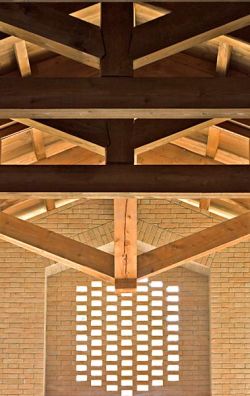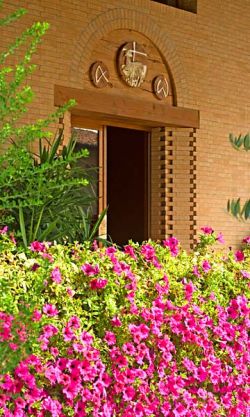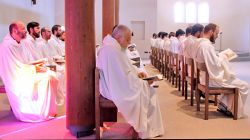Presentation of the Bose Psalter
2. The structure of the prayer
a) Introduction
Every prayer, be it evening, vigil, morning, or midday, during the week begins with the traditional verses of the Latin rite: “ Lord, open my lips…God, come to my aid…”. Sunday prayer, on the contrary, is introduced by Byzantine formulas, which are more festive and doxological and better characterize the particular or special joy of the Lord’s day. In Advent, Christmas-Epiphany, Lent, and Eastertide introductory verses taken from Scripture, which can be sung by a soloist as an announcement to the assembly, define with their theological message the liturgical season being celebrated. The singing of the “Glory be to the Father…”, a profession of Trinitarian faith, closes the introduction.
b) Hymn
The invocations of the introduction are followed by a hymn, a church composition that evokes the hour of the day and the mystery of the season or of the feast that is being celebrated. Although our community possesses a Hymn Book containing a wide selection of hymns, especially translations of the classical hymns of the Latin office, they are not included here, in the Book of daily prayer, so as to leave the choice to communities who may and should express themselves in a different way, according to their own repertory. It should be stressed, however, that the hymn is an important element of the office and that its spiritual and poetic quality expresses and reveals the quality of a community’s faith and Christian life.
c) Psalmody
Psalmody, understood as an integral and cursive praying of the Psalter, is traditional in the Church. This volume contains both the 150 Psalms, fully and without omissions, and the biblical canticles of the Old and New Testaments.
Various distributions of the Psalms are suggested for prayer: over four weeks (the liturgy of the hours according to the Roman rite, p.748–749), over two weeks (monastic psalmody of Bose A, p.750), over four weeks (suitable for a simpler and shorter prayer, psalmody of Bose B, p.754–755).
Each distribution takes into account the hour of the day (morning, evening, and night Psalms) and also of Friday (Passion Psalms), of Saturday (Psalms of creation and alliance), and of Sunday (Christological and festive Psalms). Moreover, there is a distribution of Psalms for festive seasons (the season of Christmas-Epiphany and the octaves of Easter and Pentecost: p.751) and a distribution for the celebration of saints’ feasts (p.752–753).


